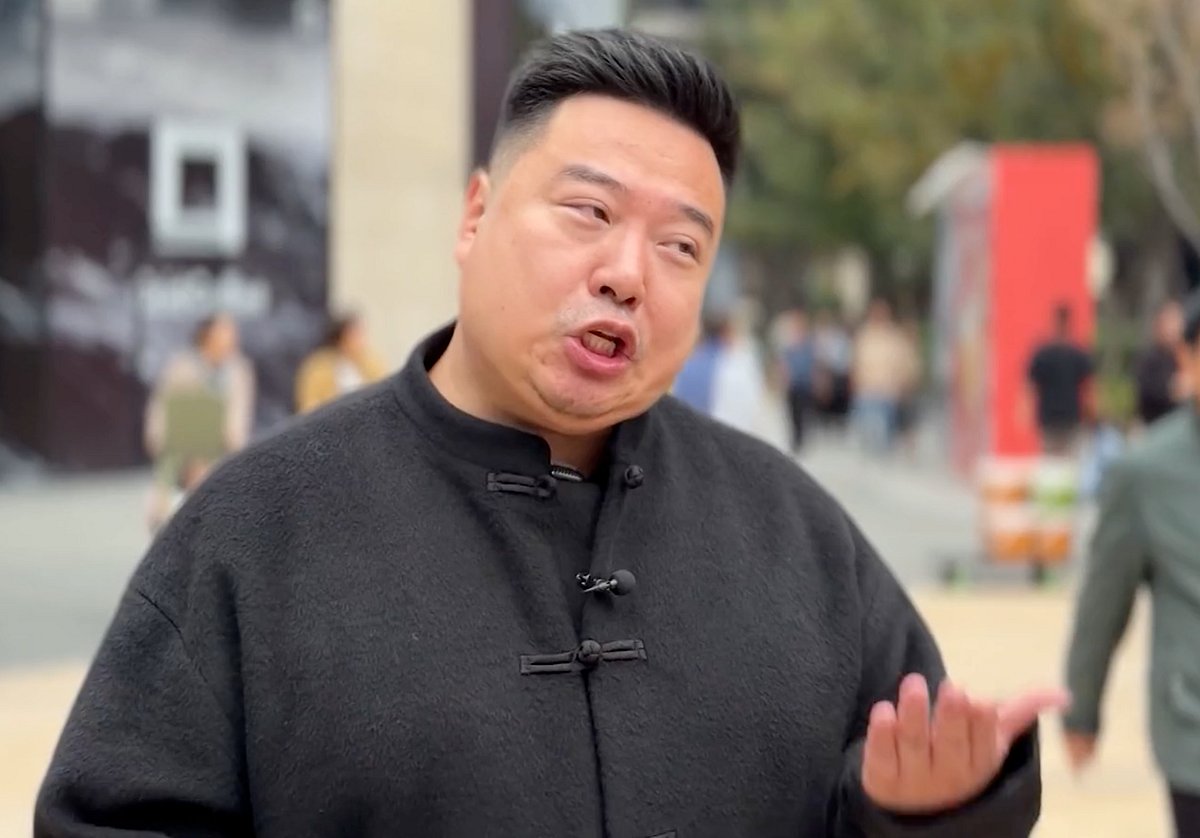In the bustling streets of Chongqing, a city more known for its spicy noodles and towering skyscrapers than American politics, an unlikely star has emerged.
With an uncanny knack for mimicking Donald Trump’s bombastic style — complete with the signature hand gestures, nasal twang, and stream-of-consciousness rants — he’s become China’s premier Trump impersonator.
Ryan Chen (Chinese name: Chen Rui), who dubs himself the “Chinese Trump”, is a 30-something former marketing manager.
A self-taught English speaker, he has never set foot on US soil.
How it started
What started as a casual dare on social media has exploded into a global sensation, amassing millions of followers and spotlighting China’s quirky fascination with the 47th US President.
Chen's journey into impersonation began innocently enough in late 2024.
He credits binge-watching American TV shows like The Apprentice — ironically, Trump's own reality series—for honing his near-native accent.
“I watched endless clips of Trump speeches, studying the pauses, the emphasis, the way he waves his hands like he's conducting an invisible orchestra,” Chen told The New York Times in a recent interview.
Livestream
One evening, egged on by friends during a Douyin (China's TikTok equivalent) live stream, he slipped into character: “Folks, let me tell you, Chongqing is the greatest city — believe me, nobody does hot pot better!”
The video, laced with gentle jabs at Trump’s trade war rhetoric but delivered with affectionate exaggeration, racked up views overnight.
By early 2025, Chen quit his day job to go full-time.
His content blends satire with cultural commentary: Trump "endorsing" Chongqing's skyline (“It's huge, tremendous—bigger than anything in fake news New York!”), reacting to US-China tensions ("Tariffs? We'll build a wall of dumplings!"), or even "advising" on everyday Chinese life, like navigating traffic in a Trump wig and red tie.
Videos often end with a wink to the audience, underscoring that it's all in good fun.
"I'm not trying to offend anyone," Chen insists. "Just want to make people laugh and maybe teach a little English along the way."
Viral hits, cross-cultural collabs
Chen's breakthrough came in April 2025 when a clip of him "touring" Chongqing as Trump caught the eye of American streamer IShowSpeed during a China visit.
In a chaotic car ride, Chen unleashed a full-throated impression: "Speed, you're fired—unless you try this street food, then you're hired!" The stream went mega-viral, with Speed dubbing him "the real Chinese Trump, bro."
Clips spread like wildfire on TikTok, YouTube, and X, where users marveled at the authenticity: "Not just the voice—the inflections, the speed, it is Trump," one commenter noted.
Post-Trump's 2024 re-election, Chen's feed surged again.
A September 2025 NBC interview saw him riff on US-China summits: "Xi and I? We're gonna have the best deal—huge!"
CNN followed in October, filming him leading a “Trump tour” of Chongqing's misty alleys, where he quipped about bridging divides: “America and China? We're like chopsticks and a fork — different, but we get the job done.”
On X, fans share his skits endlessly, from a 2024 post of him "speaking Spanish" to sell glowing letters (a surreal hit) to recent November clips joking about Trump's APEC plans.
One X user even petitioned for him to guest on Saturday Night Live: “Ryan Chen's never been to NYC, but he'd steal the show.”
A mirror to US-China ties
Beyond the laughs, Chen's act taps into deeper currents.
China’s public views of the U.S. are at a low— a 2025 Chicago Council survey found only 17% see America as a “friend”, amid tariffs and tech wars.
Yet Trump's outsized persona fascinates: bold, unfiltered, a reality-TV disruptor in a buttoned-up world.
Chen's ribbing is light-hearted, avoiding Beijing's red lines while poking fun at Trump's "fixations," like calling the UN speech "too boring."
Soft power
It's a subtle soft power play — humanising the "other side" through humour.
Not all smooth sailing, though. A California plagiarist reposts his Douyin clips on TikTok, siphoning ad revenue (TikTok's blocked in China). Chen's biggest gripe? Monetising without offending his muse. "If it's not funny, it's not worth it," he says.
Legacy of a lookalike
Chen isn't the first—back in 2017, Li Liangwei donned a blonde wig for pro-Trump gigs, gushing that the president was “outstanding”.
But Chen's digital savvy sets him apart; he's less fanboy, more mirror — reflecting how a polarizing figure like Trump becomes a global punchline.
As US-China talks loom (Trump's eyeing a Beijing visit in 2026), expect more "deals" from Chongqing.
In Chen's words: “We're making the world great again—one laugh at a time.”
Sign up for the Daily Briefing
Get the latest news and updates straight to your inbox
Network Links
GN StoreDownload our app
© Al Nisr Publishing LLC 2026. All rights reserved.
